Wellness Tourism: Why It's Good for Us and the Planet
By choosing travel that’s good for the environment, we can be doing ourselves a world of good, too. Here are tips on planning a sustainable and rejuvenating wellness holiday.
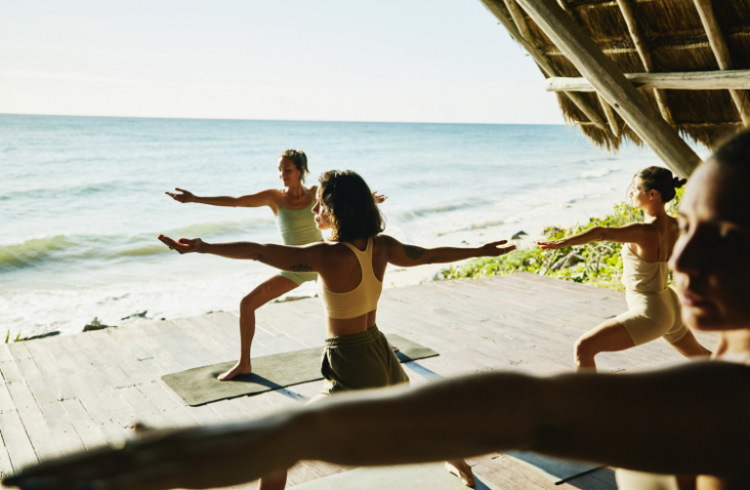 Photo © Getty Images / Thomas Barwick
Photo © Getty Images / Thomas Barwick
The origin of the English word holiday is ‘holy day’, meaning a sacred day as well as a day free of work and recreation.
Traditionally, holidays were about time off, taking in fresh air and water. Remember those Victorian novels where the characters go to ‘take in the waters’ at spa towns or retreat to the coast for rest and recuperation?
In more recent times, holidays have become synonymous with partying, overindulgence, and extreme adventure activities – all taking their toll on local environments.
But now wellness trips are emerging which go back to the traditional holiday idea, focusing on mindfulness, slowing down, observing nature, and it’s logical to assume that traveling in this way is gentle on the planet too.
But is wellness travel always good for the environment?
- Be your own energy source
- Check the green credentials
- Support the local communities
- What is a wellness holiday?
- Where to find wellness retreats
- Create your own wellness holiday
- Everything is connected
Be your own energy source
Fortunately, many wellness activities are those that tread lightly, too. When we use our own energy, we’re helping to save the world’s energy, and that’s good for us, physically and psychologically.
Bouncing along in a huge four-wheel drive or speeding around in a motorboat can be great fun, but think of the harmful emissions – and the passive nature of the activity isn’t us doing us any favors either.
It’s often the case that the lowest-impact pursuits are those that are best for our mental and physical well-being. Powering our own boat by rowing in a canoe or kayak; cycling instead of motorbiking; walking rather than being driven in a luxury car.
Many wellness activities have the simplest requirements too: unfolding a yoga mat, prayer and meditation, swimming in a lake, a forest run – all require nothing more than ourselves and some simple clothing.
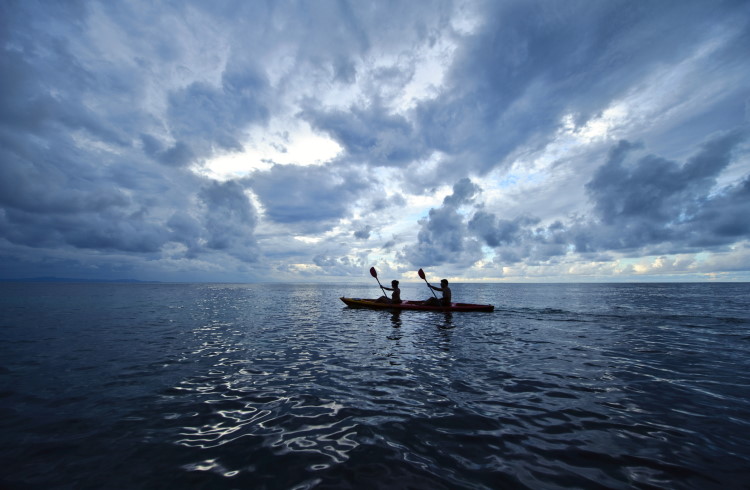
Check the green credentials
Of course, not every wellness retreat comes with eco credentials; those offering high-end luxury – with spas, intense beauty treatments, heated pools, and vast, artificially cooled or heated buildings – may consume huge resources.
But we can seek out places where the luxuries are powered by renewable energy, or where the building is designed so that it needs to use less energy.
We can investigate the provenance of the treats on offer – are they sourced locally, how did they get there, and what are they made from?
The more sustainable, the more likely they are to be good for us – from organic, plant-based food, to toiletries with chemical-free ingredients, and linens and towels made from natural materials.
The most basic resorts might be off the grid entirely, relying solely on renewable energy or water or designed with minimal requirements for energy.
It always pays to do research and many companies will list their sustainable practices on their website, if that’s a genuine focus.
Support the local communities
Ethical travel isn’t just about energy – it’s also about interaction with local communities. Are local people employed in all levels of the business, is local food offered and does the business put back into the community?
If the place you’re staying is following these practices, you’ll feel better knowing your holiday is not exploiting the local community and this in itself is good for wellbeing.
What is a wellness holiday?
The Global Wellness Institute (GWI) defines wellness as “the active pursuit of activities, choices and lifestyles that lead to a state of holistic health…it extends beyond physical health and incorporates many different dimensions that should work in harmony.”
While a wellness retreat might conjure images of luxury resorts, wellness holidays can go beyond that stereotype.
“Like other forms of specialty travel, wellness travel is not a cookie-cutter experience," according to the GWI website.
“Every destination has its own distinct flavors in relation to wellness, linked with its local culture, natural assets, foods, etc. Some travelers may be satisfied with a generic massage, exercise class or smoothie.
“The more discerning and sophisticated wellness travelers – especially those in the millennial generation – are interested in what the destination offers that is different from someplace else.
“These unique and authentic experiences can be built upon indigenous healing practices; ancient/spiritual traditions; native plants and forests; special muds, minerals and waters; vernacular architecture; street vibes; local ingredients and culinary traditions; history and culture.”
In other words, wellness means different things to different people and will vary according to taste, budget, age, and fitness levels.
Where to find wellness retreats
For those on the highest budgets, there are many high-end resorts around the world with solid eco credentials. Take Tierra Patagonia in Chilean Patagonia.
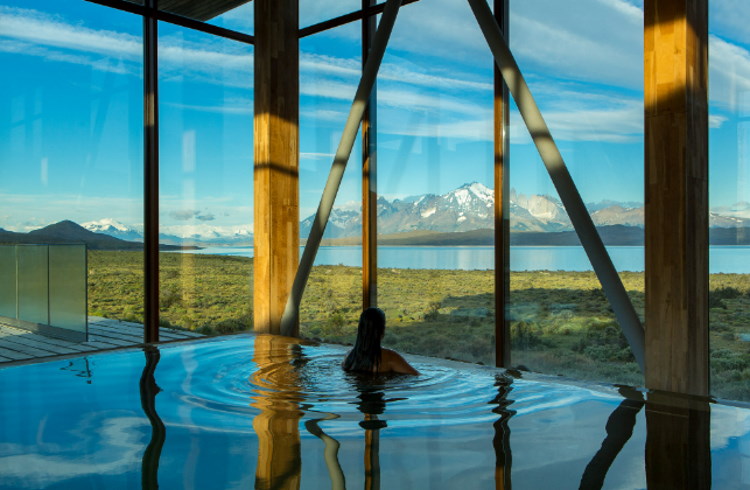
Every care is taken for guests’ wellness at this high-end retreat, but also for the environment, even from the planning stages, with the building crafted from local timbers and designed to sit harmoniously within the landscape. They use energy-efficient lighting and heating and contribute to ambitious reforestation projects across Chilean Patagonia.
Wellness retreats don’t have to be as luxurious as this, though. In fact, forgoing high-end luxury and keeping costs down can often mean both wellness and sustainability.
For example, Hinterland Village Yoga & Ayurvedic Retreat in Kerala, India, has been transformed from a neglected, weed-ridden seven-acre rubber plantation into a thriving organic farm, with nutritious soil and abundant wildlife.
“From farming to waste management, all our activities are pursued with a holistic approach and social responsibility…” says Hinterland’s website. “The estate has been planted with specially considered vegetation that grows well and also enriches the biodiversity of the estate.
“The effects of our sincere and single-minded efforts can be seen in the vast variety of birds, butterflies and other native species that have found their home in Hinterland Village.”
Create your own wellness holiday
It’s worth remembering that not every wellness retreat or eco retreat has to be billed as such. We can create our own wellness holidays, as many of the simplest ways to travel will be those that are good for us, and the environment.
For instance, a hiking holiday in Japan, staying in traditional low-cost ryokans (Japanese inns) with daily walks in fresh air, accompanied by local nutritious meals, is bound to be good for both mind and body.
The same could be said for a walking holiday in the Alps, where you can stay in family-run Alpine chalets that are comfortable but simple and relatively low-cost, and serve delicious homemade fare.
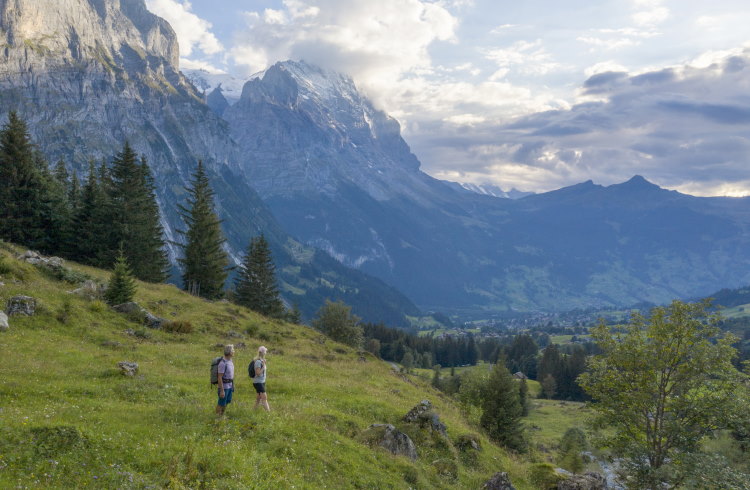
Everything is connected
“Health is a state of complete harmony of the body, mind, and spirit,” said the world’s best-known yoga teacher, BKS Iyengar.
Caring for others, caring for the planet, and caring for ourselves are all connected. A healthy environment with clean air is good for us, just as clean water and healthy nutritious food from good soil are good for us. Sustainability and wellness are intrinsically linked – we cannot separate the two things.
If everything on earth is connected, then everything we choose to do has an impact, affecting not only us but our environment.
By choosing to travel ethically, we’re choosing wellness – whether we choose a ‘wellness retreat’ or not.
Related articles
Simple and flexible travel insurance
You can buy at home or while traveling, and claim online from anywhere in the world. With 150+ adventure activities covered and 24/7 emergency assistance.
Get a quote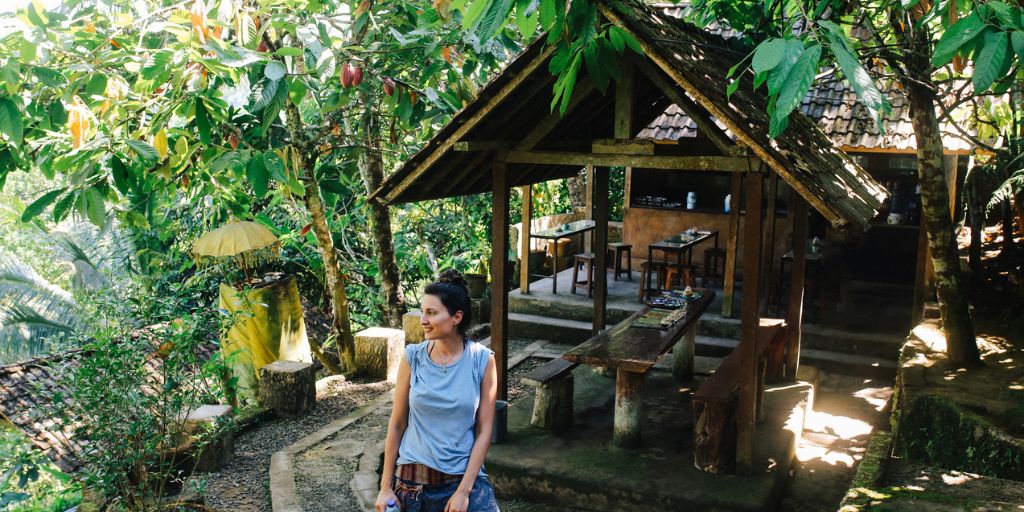
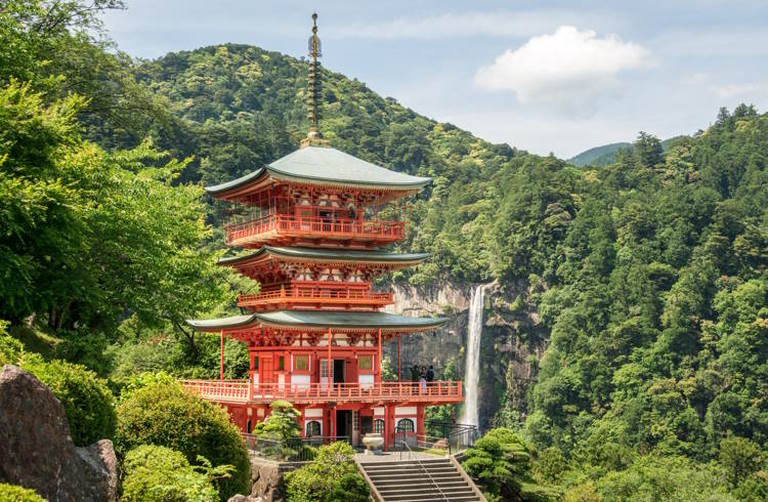

No Comments